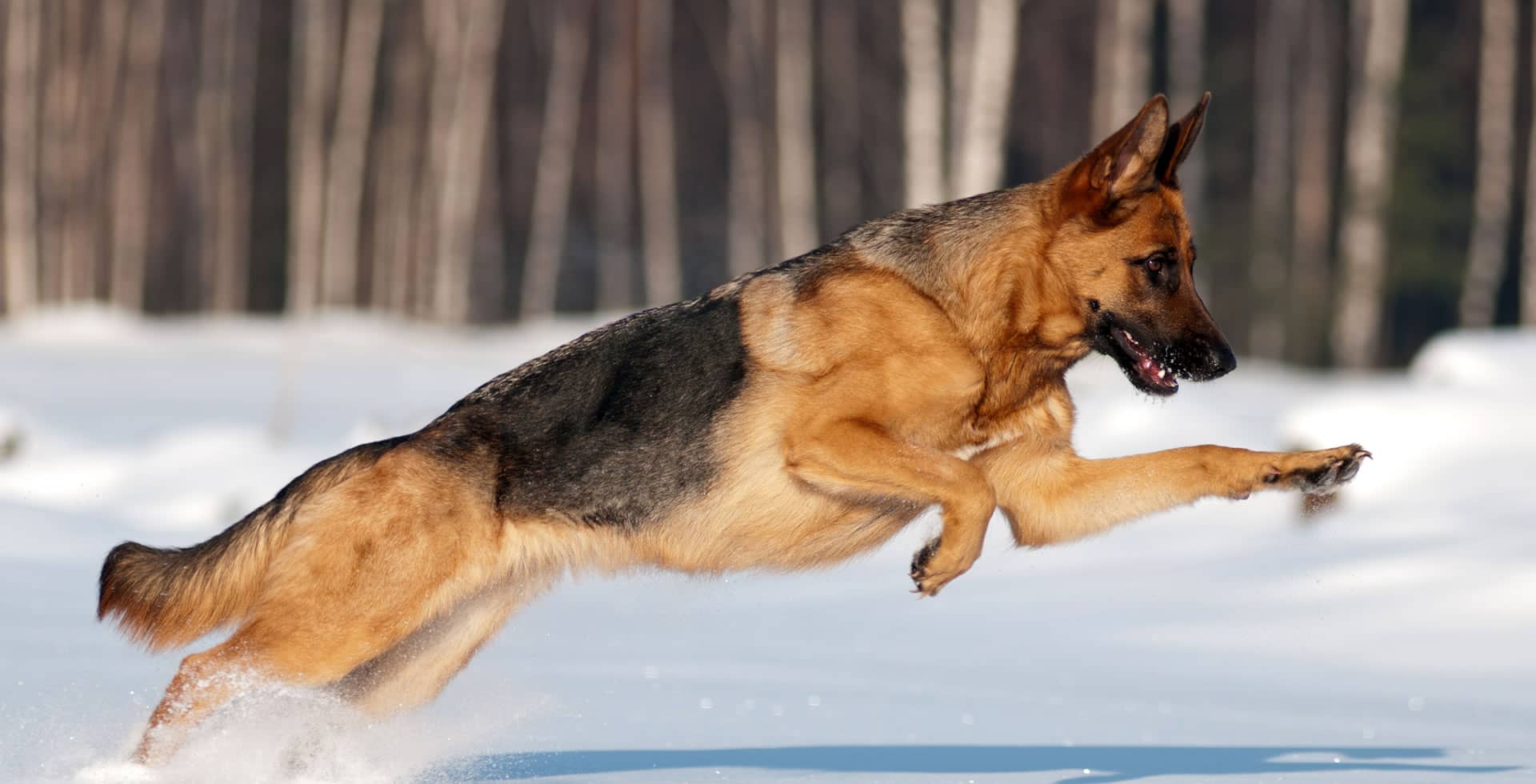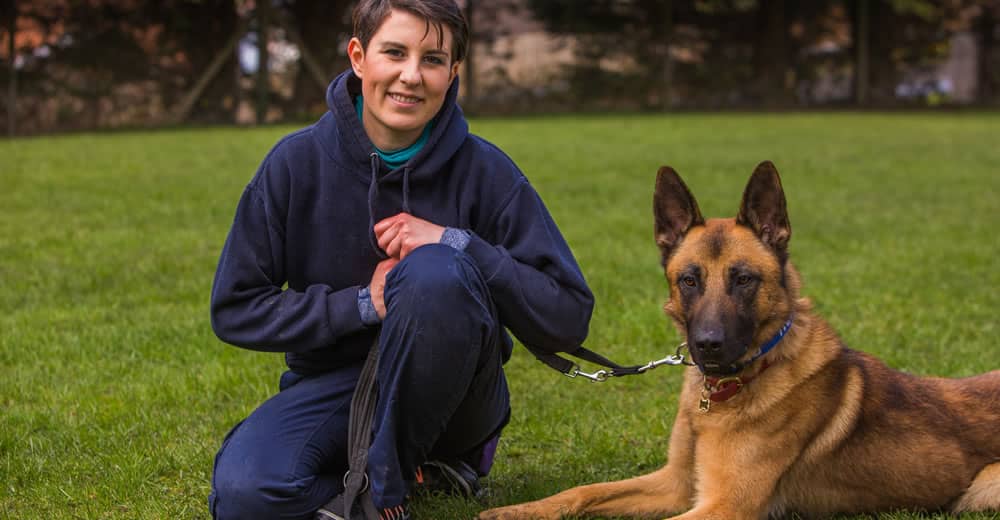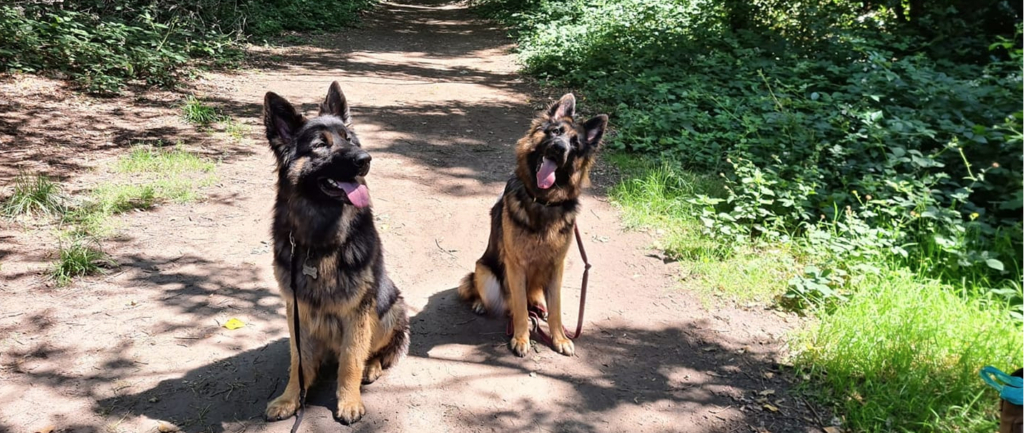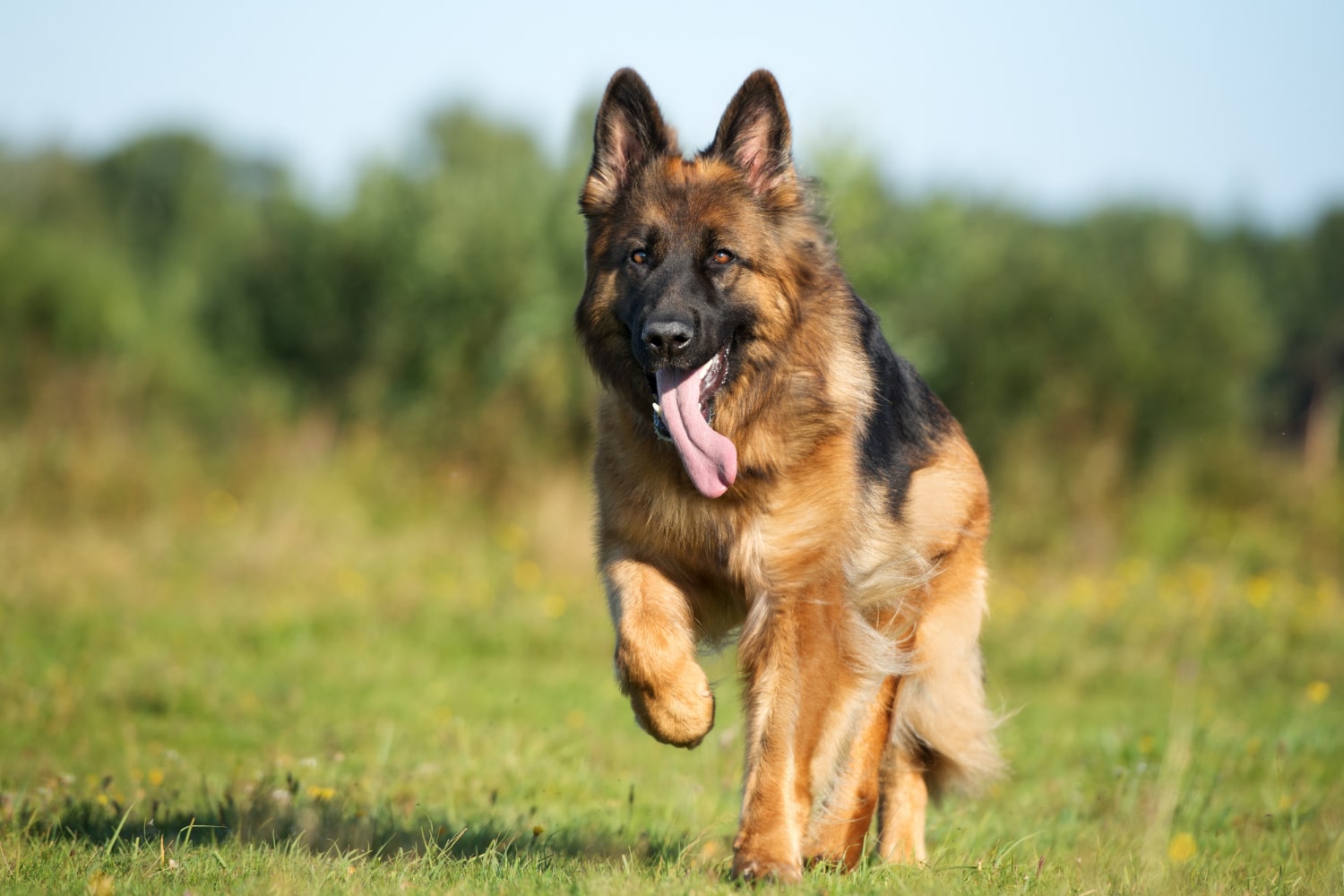German Shepherd Training Tips and Advice
You’re experienced with dogs and want a devoted canine companion that’s loyal to the family, good with kids, and a good house dog. Congratulations! You’ve just described the German shepherd! Working with your dog on German Shepherd training can be very rewarding, so read on to learn more about our top tips and tricks!
German Shepherd Characteristics
The German shepherd is intelligent and sensitive, which means they make great family dogs in the right hands. A young person walking alongside an obedient German shepherd is a real boost to the former’s self-confidence, plus peace of mind for you, the parent, knowing that few people will take liberties with someone who has a German Shepherd Dog on the other end of the leash.
Likewise, a German Shepherd is one option if you want to get fresh air and exercise with your dog. They love to be active and need an outlet for that energy. Their quick learning means they will thrive when challenged with advanced obedience training or physical activities such as agility trials.
There are good reasons why the police and security forces use German shepherds. Their imposing presence makes them an ideal family guard dog. It is indeed a foolhardy burglar who breaks into a house where a German Shepherd resides. But don’t forget you’ll have the best of both worlds! Your guard dog is also a devoted and loyal companion who loves to be with you and worships the ground you walk on.
In short, a German Shepherd is an excellent match for the experienced dog handler who craves exercise and wants to be involved in the challenge of advanced German Shepherd training. In addition, they make a devoted companion and an imposing guard dog for the right person.

German Shepherds: Things to Consider
The intelligence and quick wits of the German Shepherd mean this is not a breed for the beginner. The dog will just as readily learn bad habits as good, so the hesitant trainer could quickly get out of their depth. Some form of training is likely to be essential!
They are an energetic breed, and if left for long periods without a chance to run and chase, they can develop bad habits. These include barking, chewing, and destructive digging. So, if your lifestyle does not allow for daily long walks, you must employ a dog walker or consider a different breed. They also have certain character traits, such as a tendency to mouthiness. These need correcting early to reduce the risk of serious bites, which can be painful and dangerous even when done in play. Also, consider that these dogs are prone to guarding – in their nature – which can become unmanageable if not controlled with German Shepherd training.
Another quirk of the breed is a love of their voice. This means they don’t hold back when barking and exhibit an impressive array of ear-splitting howls. Beware the bored German Shepherd! He might amuse himself by singing and not in a way the neighbours enjoy.
Despite their imposing presence, German Shepherds are described as “sensitive”, meaning they are prone to nervousness, especially when poorly socialised. This can only be corrected with training and the help of a confident owner who knows how to react (and when not to respond!) when the dog shows signs of fear, aggression, or unwillingness to approach a strange situation.
Unfortunately, German Shepherds are also prone to health problems. These conditions include hip and elbow dysplasia, lack of pancreatic enzymes, inflammatory bowel disease, and allergic skin conditions. Treatment can be costly, especially for a large dog like the German Shepherd.

German Shepherd Training: Our Top 10 Tips
Know the German Shepherd is a Working Dog
Your dog is descended from working dogs and has an insatiable appetite for exercise. When you meet his needs to run, chase, jump, and retrieve daily, you have a happy dog eager to please. This means he’s tuned in regarding training rather than distracted and looking for trouble. Know that boredom is the enemy when it comes to training. Otherwise, there is a big chance your shepherd might end up like Rupert—.
Your first task is to meet the dog’s need for physical activity. Take stock and see what adjustments you can make to schedule at least two 45-minute active exercise sessions daily. If your work schedule doesn’t allow this, consider using a dog-walking service.
The 3 Cs: Clear, Consistent, Cues!
Proper German Shepherd training requires a combination of exercise and mental stimulation. To be effective, you must adhere to specific basic rules called The 3Cs.
- Be clear, and make sure you have a simple set of commands that everyone uses. Remember, English is a foreign language to your dog, so using “Down” and “Drop” for the same action will confuse him. Decide on command words and stick the list on the fridge door so the family knows the correct cues to use.
- Be consistent and apply all house rules consistently. No feeding from the table should be applicable all seven days a week!
- Use cues to help the dog understand. This means using your tone of voice to guide your dog and give verbal cues to mark good and bad behaviour. Let your dog know he’s about to make a wrong choice with a short, sharp “Uh no”, followed by a happy “Good boy” when he does as asked.
Reward-based Training is the most efficient
Dominance theory has been disproven. Yes, German Shepherds need a firm hand, but alpha rolls and harsh punishment are liable to create a nervous, subservient dog that behaves unpredictably and resorts to aggression.
Instead, try training by rewarding their good behaviour. The rules are easy! You use a treat, praise, or play to reward the dog when they correctly carry out a command. Guide them with a disapproving “No” when they make the wrong decisions. This way, they learn that the way to earn goodies is to be a good boy, and training becomes fun. This is the basis behind our training techniques here at Royvon.
Consider the German Shepherd’s Character
Understand your GSD is intelligent but sensitive. When attempting German Shepherd training, use compassion, kindness, and knowledge to teach your dog how to behave.
Engage your dog’s intelligence and motivate them with things they love doing. For example, if they love playing ball, use this as a reward for a well-done command. Likewise, remember German Shepherds can learn complex routines as long as they are broken down into individual steps.
For example, provide mental stimulation by teaching your dog to put their toys in a box. Teach one step at a time (Pick up and drop a ball, fetch and drop a ball, fetch and drop a ball, and drop a ball into a box). Only move on to the next step when they’ve mastered the first.

The Health of Your German Shepherd Matters
German Shepherds are unfortunately prone to joint disease and hip dysplasia. The developing joints of a young dog must be protected by feeding them a good quality diet designed for significant breed growth. Also, avoid over-strenuous exercise and training, such as agility training, until their bones have finished growing at around 12 – 18 months of age.
German Shepherds Are Prone to Obesity
German Shepherds are wedge-shaped with a tucked-up waistline. However, it’s too easy for them to pile on the pounds and lose that midriff definition. Watch out for hidden calories in training treats. Keep up the rewards, but cut back on their meal-time kibble and weigh out their ration at the beginning of the day, putting some aside in a pot to use as training treats.
Use the Right Tools for the German Shepherd Training Job
The perfect recall doesn’t happen overnight! Be realistic and take the pressure off yourself by using the right tools for the job. For the non-responsive returners, attach a long line to their collar. They can respond of their own free will, but if they’re too distracted, you still have control. Likewise, consider using a muzzle if your dog is overreactive and behaves aggressively. The peace of mind that they cannot harm you will relieve your tension, which in turn helps the dog be more relaxed.
It’s Always Good to Seek Professional Help
German Shepherds are strong, demanding dogs. If the training isn’t going to plan, don’t be afraid to call in the professionals. Putting a plan into place before bad habits become entrenched is much better! Otherwise, they may be too hard to correct. Contact us today for tailored training plans.
What German Shepherd Training Can Look Like
Training your German Shepherd can be hugely rewarding! At Royvon, we love working with this energetic breed and seeing hard work pay off. They can be fun-loving, friendly family pets.
Take a look at our YouTube video that shows you what a fully trained German Shepherd can look like:
Do you need help with training your German Shepherd? We know this breed can be a handful, but when trained correctly, they’re amazing pets! Royvon offers a variety of training options to help you and your dog. These range from 1-2-1 sessions to residential stays to get your furry friend on the right track. Please contact us at 02088197374 or [email protected] to learn more about what we offer and find the right one for you!





Leave A Comment